- Home
- Robin Cook
Pandemic Page 7
Pandemic Read online
Page 7
“Nada,” Bart said. “I even called them to check. And there haven’t been any calls coming in through Communications looking for a young, well-dressed, attractive female. But that is not unusual. It’s only been hours. I’m confident somebody is going to be missing this woman as the day drags on.”
“It’s probably going to be someone named Helen,” Jack said. He went on to describe the tattoo on the woman’s forearm and what he had learned from Vinnie. He told Bart that photos of the tattoos were available in the digital record.
“I’ll let Communications know,” Bart said. “Every bit helps.”
“If another case similar to this comes in, I want to be notified immediately,” Jack said. “Day or night.”
“I’ll let the entire MLI team know,” Bart promised.
“I’m going to go up and talk with Hank Monroe in ID and Sergeant Murphy and see if they’ve had any luck,” Jack said.
“Personally, I wouldn’t bother,” Bart advised. “I’m sure they haven’t done anything. It’s too soon. No one gets concerned until at least eight hours go by, or even twenty-four.”
“Maybe you’re right.” As frustrating as it was to acknowledge, there was little else for Jack to do at the moment.
“I know I am,” Bart said. “I’ve been working this side of the OCME for more years than I care to admit. But let me help you in other ways. What’s clanking around in your shoulder bag, samples from the autopsy you just did? If so, I can see that they get to the right people.”
“Good guess.” Jack pushed the shoulder bag across the desk to Bart. “There’s a bunch of tissue samples for histology, but, more important, there’s also samples for the DNA and serology people to do their thing. Since it was a heart transplant, I want them to run the same DNA analysis on the heart, so we’ll know how good a match it was. That would be important if rejection played any role whatsoever. I mean, there was no sign of any inflammation in the heart, so the woman’s body couldn’t have been rejecting it unless the inflammation is microscopic, which we’ll see on the histology sections. But maybe the heart was somehow rejecting the body.”
“Graft-versus-host disease? We had several cases of that in the past,” Bart said.
“It’s a long shot in this case,” Jack admitted. “Graft-versus-host disease is more apt to be seen with bone-marrow transplants, not solid organ transplants. But there’s something about this case that’s bothering me. My intuition is trying to sound an alarm, although I have no idea what it might be. But over the years I’ve learned not to ignore it.”
“Well, I’ll do what I can,” Bart said. “We don’t want to ignore your intuition. I’ll see to it that all the right people get these samples and they get right on it.”
“Thanks, Bart.” Jack stood and stretched. Then he headed back to the elevators.
5
MONDAY, 4:23 P.M.
It was now deep into rush hour, and the traffic heading north on First Avenue was bumper-to-bumper and moving slowly. With the sun soon to set and evening approaching, red taillights appearing like rubies extended off into the far distance. Although Jack usually entered 520 via the 30th Street freight dock into the basement morgue level, on this occasion he mounted the front steps and went in through the front door. His goal was the front office. Once again, he was going to try to speak with Laurie.
As he entered the outer waiting area presided over by Marlene stationed behind her high-topped desk, Jack caught sight of Rebecca Marshall sitting with a youthful couple on one of the aged couches. Changing direction, Jack approached her.
Sensing Jack’s presence, Rebecca looked up. When she caught sight of Jack she excused herself from the couple she was talking with and stood.
“I don’t mean to interrupt,” Jack said sotto voce. “Has anything been learned about the subway victim?”
“Nothing at all,” Rebecca said. “I’ve spoken with Communications and told them to call me directly if there is any word. I’ve not heard anything. If I do, I’ll let you know first thing.”
“Thanks,” Jack said. “I’ll be leaving soon, but I’ll have my mobile with me, and I’d like to be informed if any information becomes available, even after hours.”
“Okay. I’ll let my evening replacement know,” Rebecca said. “And I’ll do the same with Communications. We expect something to happen at any time now. Surely the woman will be missed at the end of the day.”
“I appreciate your help.” Jack turned and traversed the waiting room. As he passed Marlene he smiled at her. Smiling back, she buzzed him into the main part of the building.
On this occasion Cheryl had a different response as Jack entered the outer office. “She’s finally off the phone,” she said. “It was a marathon.”
Laurie’s office door was still closed. For a second, Jack debated whether to knock or just walk in. He decided to err on the conservative side. He knocked. A moment later he heard Laurie call out for him to come in.
Laurie was sitting behind her massive mahogany desk, the same desk that Bingham had used, but now in a slightly different location. These days it faced the high windows that offered light but no real view, as there was an NYU Hospital building only a few feet away. The room itself had a totally different feel from its appearance in the Bingham era. It had been painted a light color and the heavy, dark bookcases and ponderous library table had been removed, along with several dark paintings of brooding old men. In their place were white bookshelves and a blond library table. There were also some brightly colored draperies, a matching couch against the wall under the windows, and a coordinated rug. Jack had helped Laurie paint the room and pick out the furniture at IKEA. Anticipating how long approval from the city would have taken, they had used their own funds.
But the biggest difference was the room’s new occupant. Instead of a rheumy, balding, overweight septuagenarian male in a dark rumpled suit, the chief was now an attractive middle-aged but youthful-looking woman in a stylish blue dress. Befitting the new bright, cheerful decor, Laurie’s sculpted features and shoulder-length brunette hair with auburn highlights were a conspicuously welcome change.
As soon as Laurie saw Jack enter, she stood and came around the weighty desk with her arms extended. They met halfway. For a long moment they hugged. Jack was impressed with the intensity she expressed. He hugged her back with equal force.
Finally, with a deep exhale, Laurie let her arms fall to her sides. “What an afternoon!” she said, and then added, “What a day! I can’t tell you how long I’ve been on the phone. You wouldn’t believe it.”
“I have an idea,” Jack told her. “This was my third attempt at a drop-in visit. Cheryl has turned me away twice.”
“I’m sorry,” Laurie said. “It couldn’t be helped. The City Council wants to cut the OCME budget by fifteen percent. Can you imagine?”
“I can,” Jack said. “I can hear various uninformed City Council members pontificating that they would rather spend money on the living than on the dead.”
“Luckily the mayor is on our side. I don’t know what I’d do if he wasn’t.” Laurie leaned her backside up against the desk and attempted to relax by folding her arms across her chest. “How has your day been? I’m jealous that you still get to do forensic pathology. I miss it more than I thought I would. Taking on a few handpicked teaching cases on Thursdays with the residents doesn’t compare.”
“It’s been a challenging day,” Jack conceded. “I did have an especially interesting case this afternoon, which is why I’m here.”
“I thought you came in just to give me moral support,” she teased.
“Well, that, too,” Jack said diplomatically. “But really, listen to this. A twenty- to thirty-year-old well-dressed and bejeweled woman was brought into Bellevue moribund and quickly pronounced dead on arrival. She’d boarded the R train someplace in Brooklyn in apparent good health, started having respiratory p
roblems due to the pneumonia she rapidly developed, and had to be evacuated in dire straits by EMS when she got to Manhattan. Does that story ring any bells?”
“It certainly does,” Laurie said. “It sounds like the great flu pandemic of 1918.”
“That was my first thought as well,” Jack said. “We’ve all heard the stories of that scary time. That’s why I jumped on the case and posted it right away. My fear was that it could be the index case of a really bad seasonal flu strain, maybe as bad as or even worse than 1918.”
“Did you take precautions?” Laurie asked. She stared at Jack. Her face had paled at the dire implications of what Jack was saying.
“Most definitely,” Jack said. “I wasn’t going to take any chances. I had Vinnie set the case up in the decomposed room with the HEPA ventilation turned on.”
“Did you wear isolation suits?” Laurie questioned. She was well aware Jack was not a fan and had had a couple of run-ins with Dr. Bingham over not wearing them when Bingham thought they were called for. If anybody knew that Jack had a mind of his own, it was his wife.
“We did,” Jack assured her. “I have too much respect for influenza from sore experience.” Jack was referring to a flu outbreak that had been artificially spread nearly twenty years ago. He had almost singlehandedly aborted it, but not before contracting it himself.
“So what did you find? Did it look like influenza?”
“Yes and no,” Jack said. “The lungs did appear as if it could have been a primary influenza pneumonia, complicated by a cytokine storm. They were completely full of fluid and exudate.”
“I’ve never seen a cytokine storm,” Laurie said. She was getting increasingly concerned.
“Nor have I, to be honest,” Jack said. “I’ve just read about it and seen slides. Anyway, it seemed grossly consistent with the descriptions I’ve come across, but obviously we don’t have any slides yet. But there was a major surprise in the case. The patient had had a total heart transplant not more than three or four months ago.”
“Really?” Laurie frowned as she tried to fit this surprising new information into the picture she was forming of the case. It wasn’t easy. “So what was your conclusion?”
“I haven’t come to any conclusion,” Jack said. “Everything is pending, including multiple rapid respiratory virus screens. I literally ran the samples over to the Public Health Laboratory myself and gave them to a specific individual who is going to get back to me ASAP.”
“Good gravy,” Laurie said.
Jack smiled behind a concealing hand. He wasn’t a fan of foul language, as he’d let Carlos know that afternoon, but he certainly would have come up with a more appropriate expletive than good gravy. In the face of such a potentially important case, with time of the essence, it was comically virtuous.
“There’s another complication,” Jack said. “We don’t have any identification yet. There was no phone or purse with the body. As for the body itself, we’re in luck. There were a number of tattoos, so if and when we get a loved one or a friend to call in, we can be sure of an identification, even over the phone. Making an identification and reconstructing her social connections will be critical if quarantining and/or prophylactic treatment is to be done. It could involve everyone on the subway car she was riding and their contacts. What I’m thinking is that maybe you should start putting all the major health entities on notice, possibly even including the NYC Emergency Management and the CDC.”
“But there is no diagnosis yet,” Laurie said. “When do you expect to hear from your contact at the Public Health Laboratory?”
“Within a few hours,” Jack said. He briefly thought about telling Laurie that the virologist coincidentally lived in their neighborhood and was interested in joining the local street basketball game. But remembering Laurie’s current feelings about his own playing, he decided against it. He didn’t want to prompt another lecture.
“Then we wait,” Laurie said firmly. “I don’t want to say anything to anyone until we have a confirmed diagnosis. I’d also like to have an ID. Which MLI is on the case?”
“Bart Arnold,” Jack said.
“Good. He’s got the experience to deal with something as potentially disruptive as this.”
“I think you should at least let the Commissioner of Health know,” Jack said. “Some of the preliminary plans they’ve drawn up for this kind of eventuality could be put in motion. If it is a new, particularly lethal strain of influenza, which it would have to be for her to develop a cytokine storm in the face of the immunosuppressant medication she undoubtedly was taking, time will be critical. Getting enough antivirals alone into the city might be a serious challenge in itself, so best to start immediately.”
“But that’s just the point.” Laurie raised a brow. “There has been so much worry and planning put into dealing with a possible lethal influenza pandemic like the one in 1918 that the mere suggestion one is in the making will cause a veritable panic. And if a panic starts it will be very difficult to stop, and it could bring the city to a standstill and cost hundreds of millions of dollars. What I’m saying is that putting out word at this point will do more harm than good.”
“Yet getting a jump on the situation could save lives,” Jack persisted.
“Jack, I am not going to alert anyone until there’s a firm diagnosis,” Laurie said sternly. “I’m the chief medical examiner and that is my decision. Period!”
Taken aback by Laurie’s sudden vehemence, Jack merely stared at his wife. It was painfully obvious that she was exerting executive privilege and ending the discussion as if he were a mere low-level employee. The disagreement, if there had been one, was over. Jack couldn’t believe it.
“And let me be clear,” Laurie continued. “I don’t want you going over my head on this issue. I know you did that to Dr. Bingham on at least one occasion. I won’t be happy if you do it to me. We will wait for laboratory confirmation before we terrorize the city and the Department of Health. And that goes for the CDC, too. Do not call the CDC! Having their epidemiology officers nosing around here would have the same result.”
Jack studied her in silence for a moment. “Are you ordering me as my commanding officer or as my wife?”
“That kind of question doesn’t even deserve an answer,” Laurie said. “When I accepted this job, I accepted the responsibility it entails, which you and I talked about ad nauseam. We both entered this new phase with our eyes open. I expect you to support me both as an OCME employee and as my husband.”
“I thought I was already doing both,” Jack said while fighting against his rising irritation.
“I’m afraid I need a lot of support,” Laurie confessed, her tone softening. “I’m handling it, but it’s all so much more stressful than I imagined. At a minimum, I’m counting on you not to make things more difficult. And I’m sensing you are getting . . . how should I say it? . . . overly invested in this subway death, which could be problematic.”
“How could I not?” Jack questioned.
“I know you, Jack Stapleton,” Laurie said. “I distinctly remember back when we learned about JJ’s tumor you went overboard on a chiropractic case that almost got you fired. Now we are facing a struggle with Emma. I’m worried that you might be latching on to this current case in the same way.”
Jack could feel his irritation continue to mount. It was demeaning to realize he was so obvious. What she was saying was true. He needed a diversion.
“So I’d like to also ask you to allow Bart Arnold and the other experienced MLIs we have to do their job. Don’t go running out into the field yourself, provoking people and causing trouble on this case. When you’re motivated and come across incompetence, which we both know there’s a lot of out there, you are not the most diplomatic person in the world. If you cause trouble now, it will only make my job more difficult, especially since you are my husband.”
“You’ve do
ne some serious ‘running out into the field’ yourself,” Jack snapped. Both he and Laurie had trained at programs that encouraged the medical examiners to go out into the field as an adjunct to their investigations into the manner and cause of death. Since the NYC OCME had a different philosophy, relying on the MLIs to do the fieldwork, he and Laurie had run afoul of the previous chief on several occasions.
“When we were training,” Laurie said, “neither one of us had the kind of MLI support that we have here.”
“Okay, I’ll try to behave myself,” Jack said tersely. “Are you coming home soon?” He wanted to change the subject before he said something he might regret. In his reincarnation as a furiously independent person born out of the demise of his first family in the air crash, he didn’t like to be bossed around. At the moment he felt he was being bossed around big-time.
“I wish,” Laurie said. She relaxed a degree. “After being on the phone most of the afternoon, I’ve got a ton of things to attend to before I can leave. Also, I have to prepare for tomorrow’s conference call about the new morgue building alongside 421. Budget problems are nonstop. They’re going to be the death of me.”
“I cannot for the life of me understand how you can put up with all the bureaucratic bullshit,” Jack said. “All right, I’ll see you at home. I’ll be leaving in a few minutes.” He headed for the door.
“And I wish you wouldn’t ride that bike,” Laurie called after him. “I need you healthy on multiple fronts.”
Don’t go there, Jack thought but didn’t say. He’d been given enough orders, thank you very much. Instead of responding verbally, he just waved over his shoulder, indicating he’d heard but was going to ignore the suggestion.

 Shock
Shock Mutation
Mutation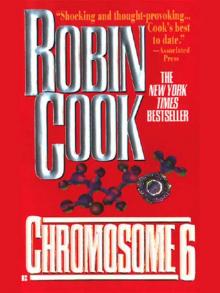 Chromosome 6
Chromosome 6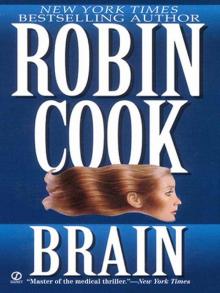 Brain
Brain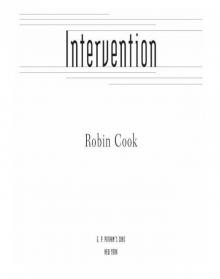 Intervention
Intervention Invasion
Invasion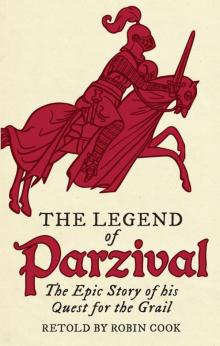 The Legend of Parzival: The Epic Story of His Quest for the Grail
The Legend of Parzival: The Epic Story of His Quest for the Grail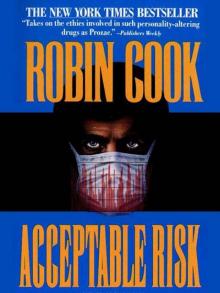 Acceptable Risk
Acceptable Risk Cell
Cell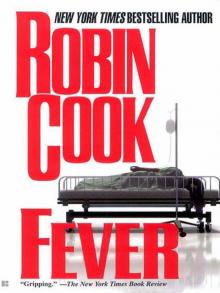 Fever
Fever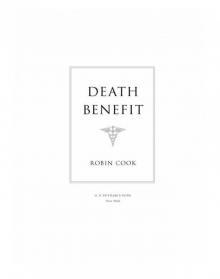 Death Benefit
Death Benefit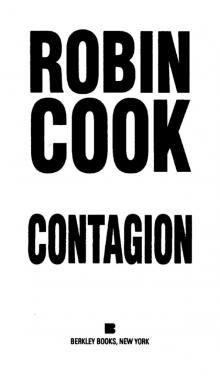 Contagion
Contagion Mindbend
Mindbend Coma
Coma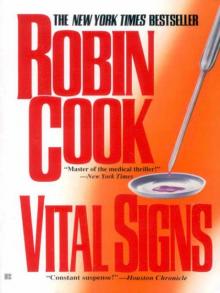 Vital Signs
Vital Signs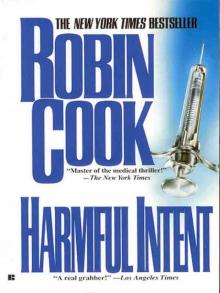 Harmful Intent
Harmful Intent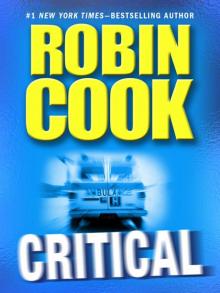 Critical
Critical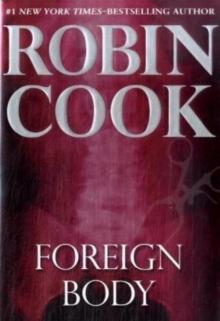 Foreign Body
Foreign Body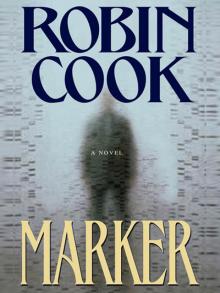 Marker
Marker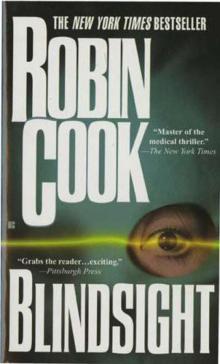 Blindsight
Blindsight Terminal
Terminal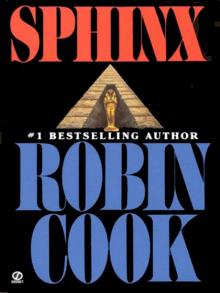 Sphinx
Sphinx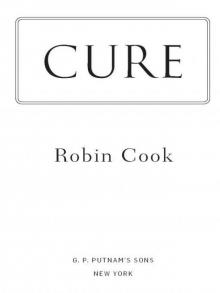 Fatal Cure
Fatal Cure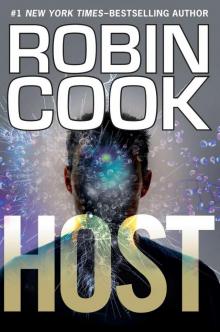 Host
Host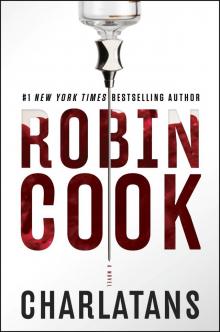 Charlatans
Charlatans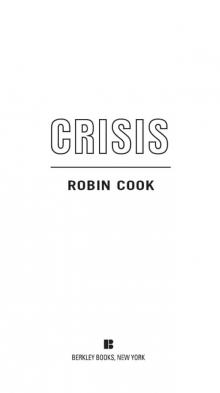 Crisis
Crisis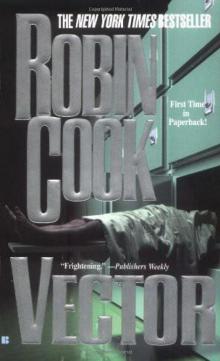 Vector
Vector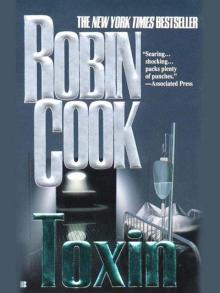 Toxin
Toxin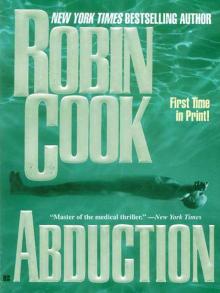 Abduction
Abduction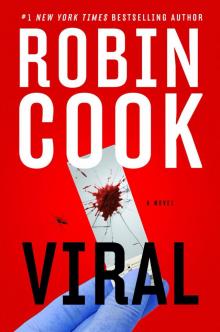 Viral
Viral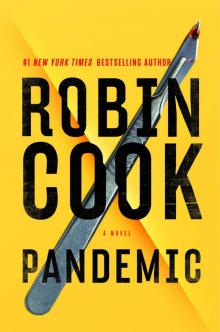 Pandemic
Pandemic Outbreak
Outbreak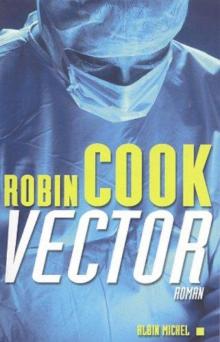 Vector js&lm-4
Vector js&lm-4 Godplayer
Godplayer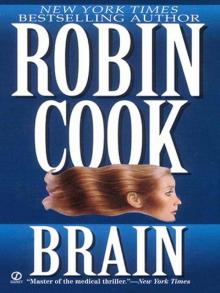 A Brain
A Brain Year of the Intern
Year of the Intern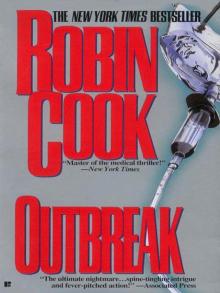 Outbreak dmb-1
Outbreak dmb-1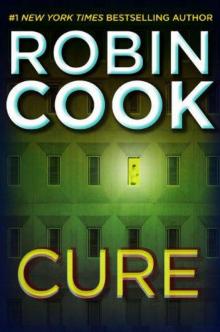 Cure
Cure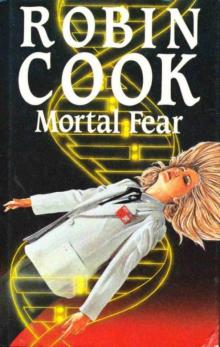 Mortal Fear
Mortal Fear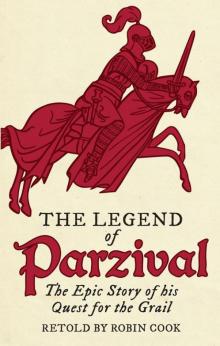 The Legend of Parzival
The Legend of Parzival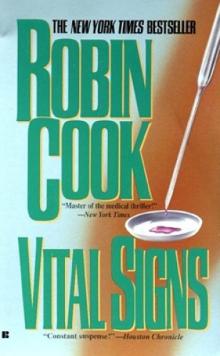 Vital Signs dmb-2
Vital Signs dmb-2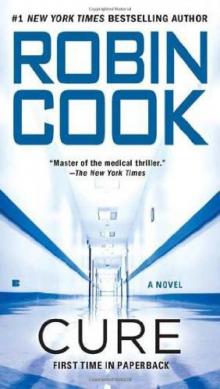 Cure (2010) sam-10
Cure (2010) sam-10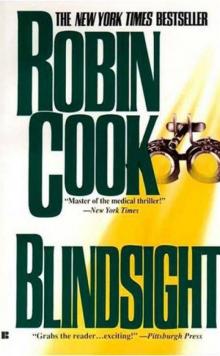 Blindsight sam-1
Blindsight sam-1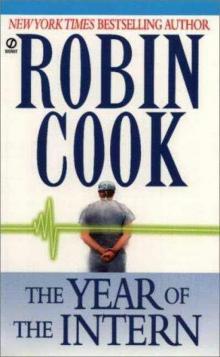 The Year of the Intern
The Year of the Intern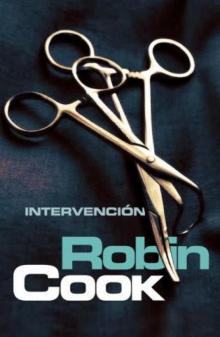 Intervention sam-9
Intervention sam-9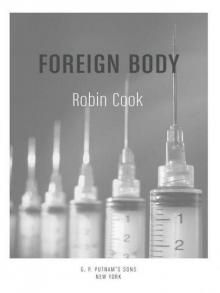 Foreign Body sam-8
Foreign Body sam-8